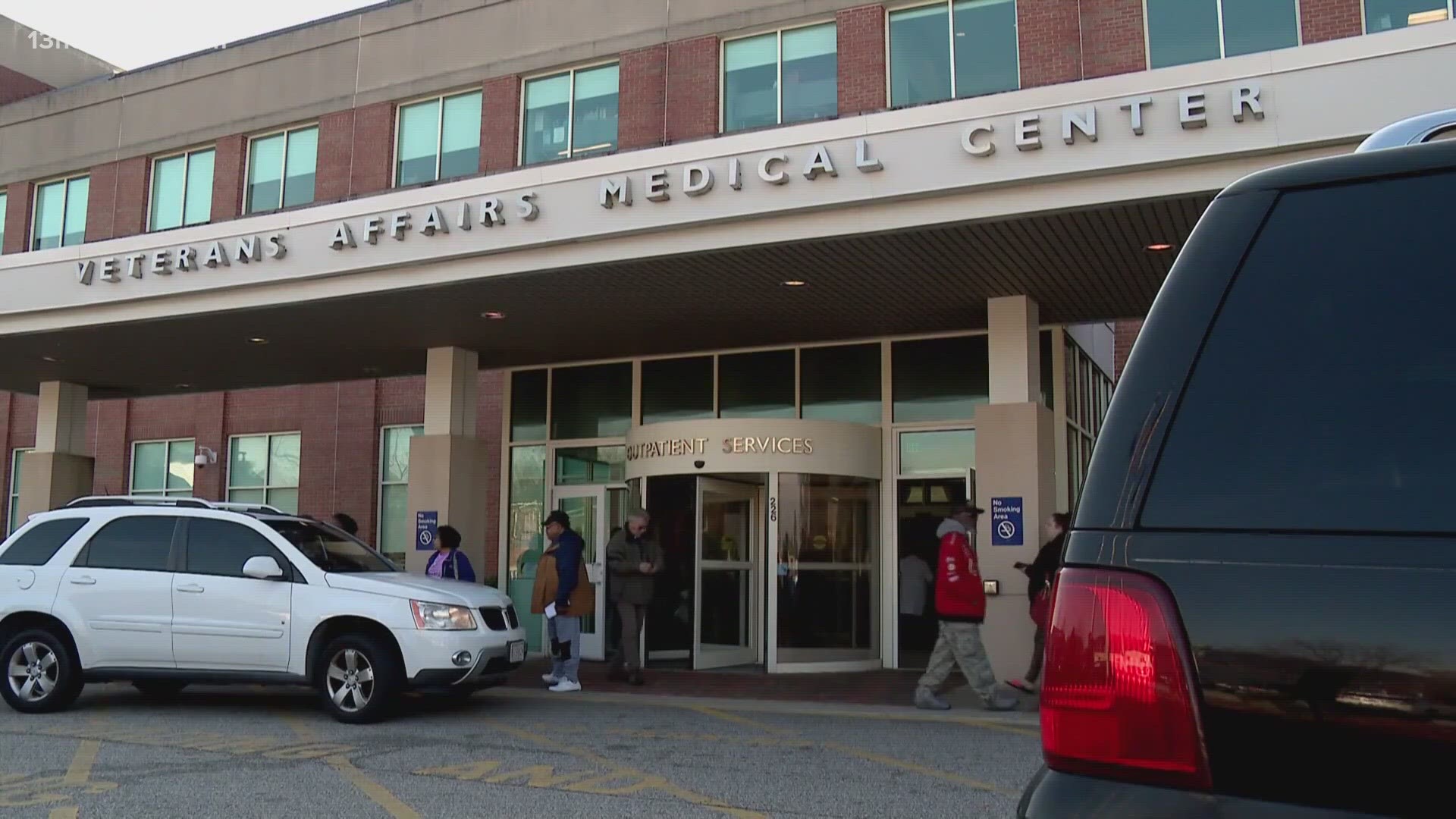HAMPTON, Va. — The Hampton Veterans Affairs Medical Center (HVAMC) is coming under fire on Capitol Hill.
In a letter to Veterans Affairs Secretary Denis McDonough, Rep. Jen Kiggans (R-Virginia, 2nd District) and House Veterans Affairs Committee Chairman Mike Bost (R-Illinois) say there was "substandard care" in the facility's Surgical Services Department.
The lawmakers contend that there were "credible allegations" of retaliation being "commonplace" against VA employees who report patient safety concerns.
That allegation raises questions about potential violations of the 1989 federal Whistleblower Protection Act. The letter also stated that "gross medical incompetence" is prevalent and "goes unaddressed."
Kiggans and Bost called the findings "incredibly concerning."
In a news release, they said:
“Patient safety should be VA’s highest priority. To hear allegations that substandard care may be present at the Hampton VAMC, and that when it is flagged by medical professionals who have a responsibility and oath to their patients later leads to retaliation is incredibly concerning, We hope to work with you to ensure that the Hampton VAMC is a facility where all veterans in Hampton Roads can proudly and safely seek their healthcare.”
13News Now requested a response from HVAMC. In an e-mail, it said:
"As we work to provide world-class care to Veterans, patient safety is our number one priority. Whenever issues are raised, we take them seriously, investigate them urgently, and take swift action. The VA has been looking into these concerns since last August, with VISN 6's Chief Medical Officer and a team visiting several times to develop action plans – and changes are already underway, with additional investigations pending."
The VA statement continued: "We appreciate the oversight from Congress and the Inspector General and will work closely with them to improve care and services at the Hampton VAMC. We will respond directly to Chairman Bost and Chairwoman Kiggans about their letter.”
A 2023 survey found that the Hampton facility received four out of five stars from the Centers for Medicare & Medicaid Services' Annual Overall Hospital Quality Star Ratings.
That study was published in the Journal of General Internal Medicine and the Journal of the American College of Surgeons. The review evaluated the VA on quality, safety, access, patient experience, and comparative cost and efficiency.
But in 2022, several failures at the Hampton VA Medical Center over nearly two years came to light which led to a delayed cancer diagnosis for a veteran, a report from the Department of Veterans Affairs' internal watchdog found.
The report released by the VA's Office of Inspector General (OIS) detailed several healthcare providers’ failures to communicate, act on, and document abnormal test results between July 2019 and April 2021, when the patient was diagnosed with metastatic prostate cancer. The report didn't identify the person involved but said he was a man in his 60s.
The first failure happened in July 2019 when a vascular surgeon didn't communicate and act on an abnormal CT scan, which found possible cancer in the prostate gland (a malignant lesion, to be specific), according to the report.
In September 2020, a nurse practitioner didn't adequately address the patient’s complaints regarding urinary issues, which were discussed during an assessment over the phone.
In the fall of 2020, a primary care provider didn't communicate test results to the patient and didn't act on an abnormal result of a prostate-specific antigen test (used to screen for prostate cancer) by not performing follow-up tests or talking with a urologist.
In March 2021, the primary care provider didn't correctly enter bone scan orders in an electronic health record, causing a delay in results that found possible metastatic bone disease. A technology expert tried to fix the problem, but a registered nurse with no knowledge of the patient was entered as the ordering provider, which resulted in those results not being sent to a primary care provider.
In April 2021, the patient’s new primary care provider became aware of the bone scan findings and shared the results with the patient.
The OIS concluded the report with seven recommendations to ensure something like this doesn't happen again, including better communication of test results and a possible review of other patients' prostate-specific antigen test results.

